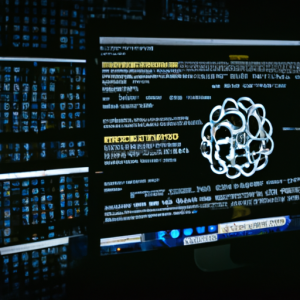The world of IT education is constantly evolving, with new trends and innovations emerging to keep pace with the rapid advancements in technology. In the UK, IT education has undergone significant changes in recent years, driven by factors such as the pandemic, the growing skills gap, and the rise of artificial intelligence and machine learning. This article explores the latest trends and innovations in IT education, highlighting the ways in which the sector is adapting to meet the demands of the modern workforce.
Emerging Technologies and Their Impact on IT Education
The rise of emerging technologies such as artificial intelligence (AI), machine learning, and the Internet of Things (IoT) has had a profound impact on IT education. These technologies are transforming the way we live and work, and as a result, IT education must evolve to ensure that students are equipped with the skills and knowledge required to thrive in this new landscape.
- Artificial Intelligence and Machine Learning: AI and machine learning are becoming increasingly important in a wide range of industries, from healthcare to finance. As a result, IT education is placing a greater emphasis on these areas, with many institutions offering specialized courses and degrees in AI and machine learning.
- Internet of Things: The IoT is revolutionizing the way we interact with our environment, with billions of connected devices generating vast amounts of data. IT education is adapting to this trend by incorporating IoT-related topics into curricula, ensuring that students are well-versed in the technologies and concepts underpinning this rapidly growing field.

The Pandemic’s Influence on IT Education
The COVID-19 pandemic has had a significant impact on IT education, forcing institutions to adapt to remote learning and highlighting the importance of digital skills in the modern workforce. Some key trends that have emerged as a result of the pandemic include:
- Increased Adoption of Online Learning: With many institutions forced to close their doors during the pandemic, online learning has become the new norm. This has led to a surge in demand for online IT courses and programs, as well as the development of new digital learning platforms and tools.
- Greater Focus on Digital Skills: The pandemic has underscored the importance of digital skills in the modern workforce, with many employees relying on technology to work remotely. As a result, IT education is placing a greater emphasis on digital skills training, ensuring that students are equipped with the tools and knowledge required to succeed in an increasingly digital world.
Addressing the Skills Gap
The growing skills gap in the IT sector is a major concern for employers and educators alike. To address this issue, IT education is focusing on the following areas:
- Industry Collaboration: Many IT education institutions are partnering with industry leaders to develop curricula that are aligned with the needs of the job market. This collaboration ensures that students are learning the skills that are most in-demand, increasing their employability upon graduation.
- Soft Skills Training: In addition to technical skills, IT professionals also require strong soft skills, such as communication, teamwork, and problem-solving. IT education is increasingly incorporating soft skills training into its programs, helping students to become well-rounded professionals who can thrive in the modern workplace.
Conclusion
The landscape of IT education is constantly changing, driven by factors such as emerging technologies, the pandemic, and the growing skills gap. By embracing these trends and innovations, IT education institutions in the UK are ensuring that their students are equipped with the skills and knowledge required to succeed in the rapidly evolving world of technology. As the sector continues to adapt and evolve, it is crucial for educators, employers, and policymakers to work together to ensure that IT education remains relevant and effective in preparing the workforce of the future.





